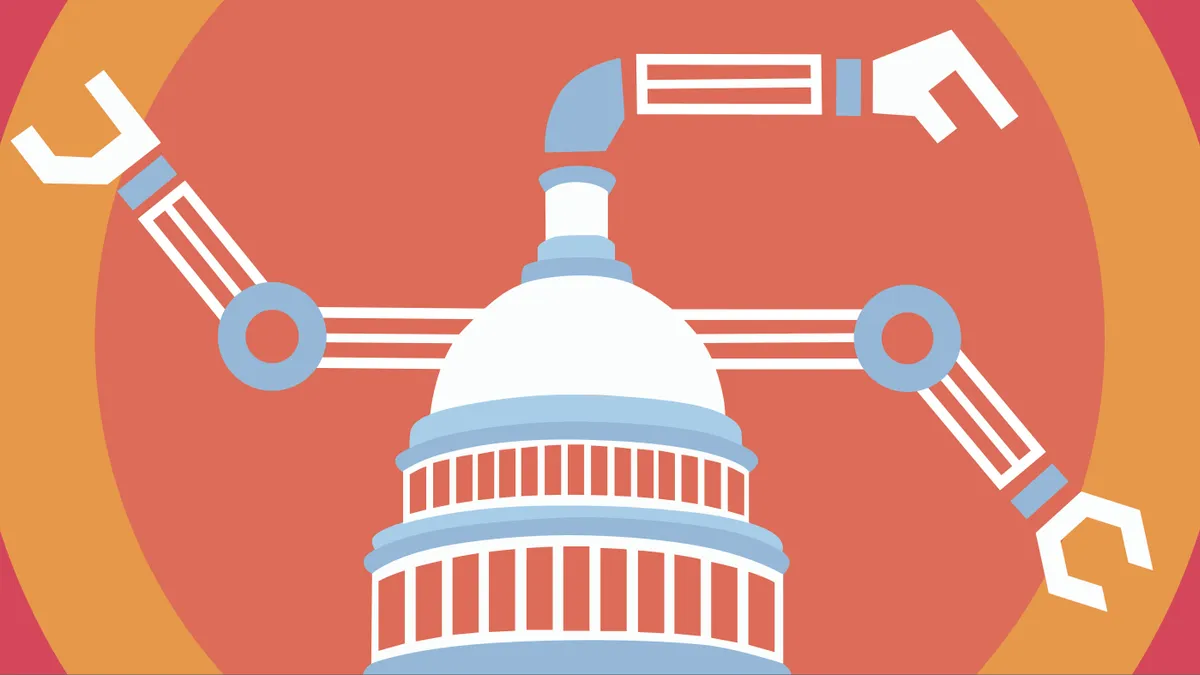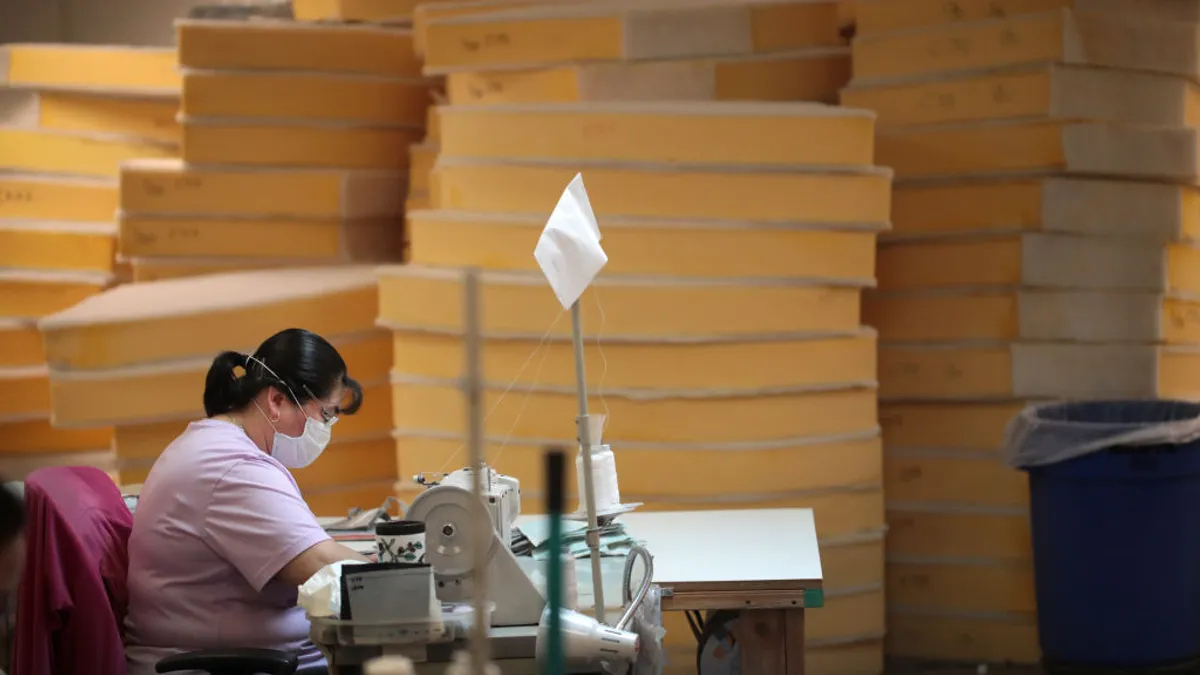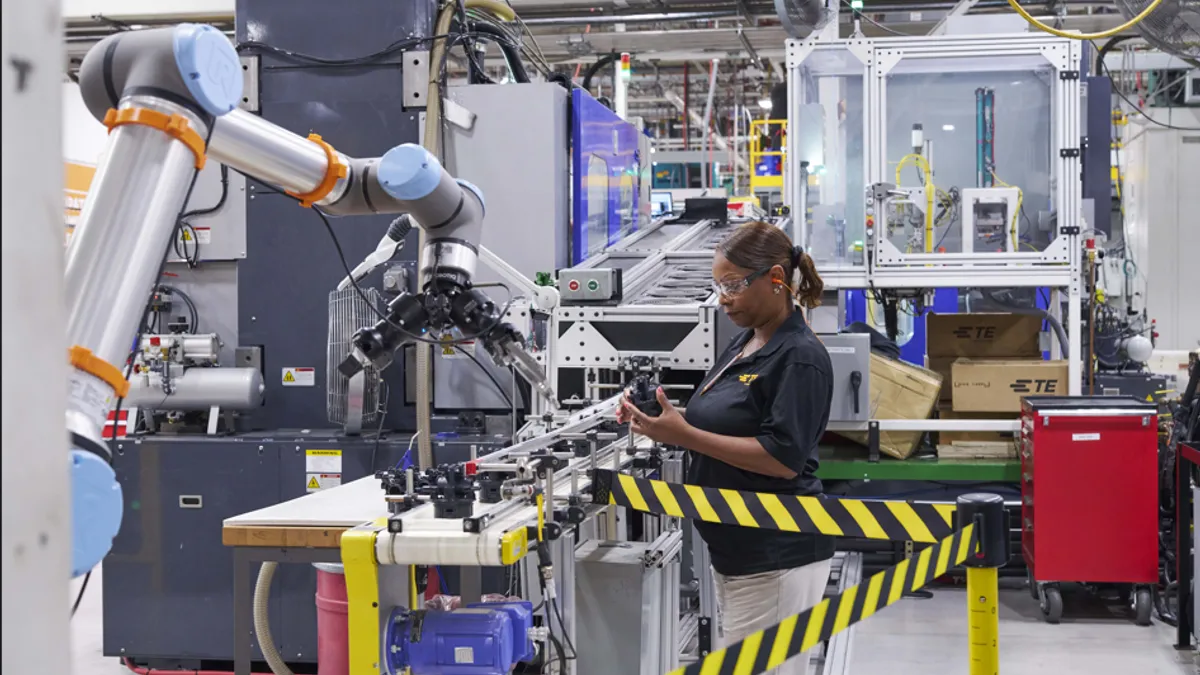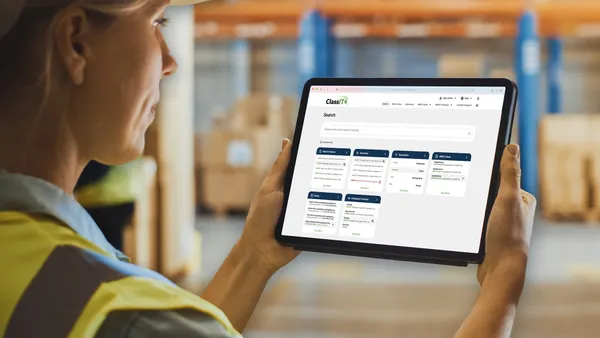Editor's Note: The following is a weekly column covering technology and regulation within the supply chain and logistics industries
January 2018 was the strongest month for business since 2015
The data is in: January was a great month for business, with 3PLs buzzing with expansionary plans and investments, but in February the manufacturers PMI hit 55.9, a 40-month high, according to IHS Markit. That's a strong signal for supply chains, suggesting that 2018 will continue to be a year of accelerated growth.
According to IHS Markit's report, "Confidence regarding the outlook for business activity over the next 12 months picked up to its strongest since May 2015."
The Big Takeaway: Corporate America is gaining confidence, likely from a combination of a growing economy, low unemployment rate and the GOP tax law. For supply chains, that means more goods to move and a stronger cash flow, which could help shippers, carriers and 3PLs grow.
This rule could accelerate meat supply chains
The Wall Street Journal reported there are new Department of Agriculture rules on the table for hog farmers and meatpackers that would allow them to slaughter hogs faster and absorb some quality and safety inspecting duties away from federal inspectors.
Presumably, the rules would make meat plants more efficient, but there's already backlash from consumers who fear the quality of the meat will fall and increase the risk of food poisoning.
The Big Takeaway: If the rules take effect this year, meat supply chains would undoubtedly accelerate and saturate the market with more pork, which could put more pressure on a slowly developing cold chain. Right now it doesn't seem like there's a risk of over-saturation, as Americans eat a lot of meat and have been steadily eating even more (even though chicken is usually the meat of choice).
Americans aren't crazy about self-driving cars
Automakers and legislators can't stop talking about autonomous vehicles (AVs) or cars with artificial intelligence, but it seems like the American public isn't quite ready for the conversation.
According to a new Gallup poll, 54% of Americans say they are "unlikely to use self-driving cars," while 59% said they would be "uncomfortable riding in self-driving cars" (sorry, Uber), and 62% — the real kicker — said they would be "uncomfortable sharing the road with self-driving trucks."
Ouch. That's after dozens of 3PLs have reserved Tesla's forthcoming autonomous semi trucks and autonomous semi trucks from other innovators — but if the American public isn't ready, then how are automakers and supply chain leaders supposed to move forward?
The Big Takeaway: This is somewhat of a glass half full, glass half empty scenario (give or take a few percentage points). The average American may not be ready now, but that doesn't mean he or she won't be in the near future. Plus, automakers, 3PLs and legislators are nowhere near ready to put AVs on the road, so to predict the end of AVs based on this poll is a bit hasty. There's still a lot of time before AVs will be ready — or even allowed — to hit American roads, so there's still plenty of time for the American public to come around.
In case you missed it...
Apple wants to buy cobalt directly from miners, which could spell trouble for the electric vehicle (EV) market. Cobalt is a necessary metal for Apple's iPhone batteries but also for EV batteries, such as Tesla's batteries, for example.
This move implies Apple may be nervous about cobalt supplies in the wake of the EV boom — more and more automakers are making EVs and need cobalt, and that's putting the pressure on Apple to get the best cobalt for the best rates.
While there's no shortage in sight, it's always indicative of future disruption potential when a company skips the middle man and goes straight to the source.
Speaking of Tesla, The Wall Street Journal reported the company is now taking Model 3 reservations from first-time reservation holders, suggesting that Model 3 production is finally ramping up.
Manufacturers and supply chains keep saying robots aren't going to take away factory jobs anytime soon, but they are in Bangladesh. The Wall Street Journal has a neat feature on how automation and robots are saturating garment factories overseas, and what that means for American business and the local economies in developing countries.
Generally, it means lower labor costs for those companies and cheaper exports to the U.S., but it also means heavy job losses for those local communities. For U.S. companies sourcing from these kinds of factories, it means less worry about human rights abuses and unethical practices riddling their supply chains — and that's likely to be attractive to big companies with sprawling supply chains without much direct oversight and transparency.





















